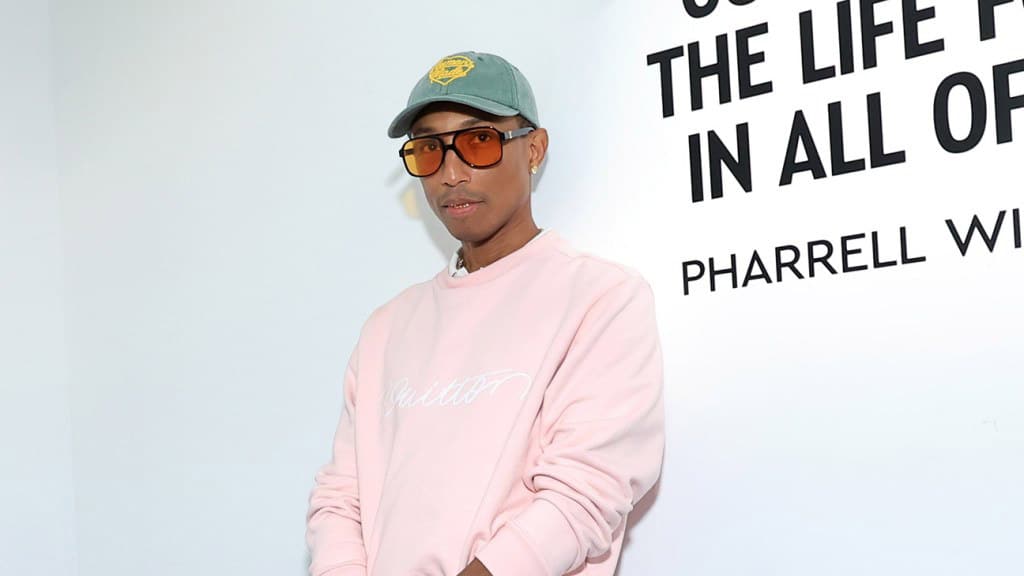Table of Contents
A Golden Vision Ends
In the midst of postproduction, multitalented musician and producer Pharrell Williams and acclaimed French filmmaker Michel Gondry have decided to discontinue work on their coming-of-age movie musical titled Golden. The project, which was initially envisioned as a stirring cinematic journey, ultimately became too challenging to realize according to the filmmakers’ exact plan. Previously earmarked for a release date of May 5, this cinematic venture was once called Atlantis and had been established under Universal Pictures, where Pharrell maintains a long-running creative partnership.
Sadly, the public will not be able to see how Gondry’s distinctive storytelling style might have blended with Pharrell’s signature musical flair, as the team concluded they could not deliver the film in a manner consistent with their initial intentions. Instead of forging ahead with a compromised version, they saw no option but to terminate the entire production. On Friday, Pharrell and Gondry clarified their reasons for halting the film in a candid statement, revealing the collective decision made in the editing room. According to their account, they and the creative team realized there was no viable avenue to tell the story the way they had initially planned.
:max_bytes(150000):strip_icc()/Pharrell-Williams-020725-20c0b0da78484d0ab1a7e4eab2c44fa4.jpg)
Their statement read, “When all of us got into the editing room we collectively decided there wasn’t a path forward to tell the version of this story that we originally envisioned. We appreciate all the hard work of the talented cast and crew. While we’re disappointed, we can’t deliver this film, we and our incredible partners at Universal will collaborate in a different capacity again soon.” This announcement served as an expression of gratitude for those who contributed significant time and effort to the production, while also confirming that the final result would never see the light of day. At this stage, Universal has not commented publicly on this development.
Universal’s Costly Decision
With Golden now shelved, Universal faces a substantial financial burden. According to a report from Variety, the studio will bear costs estimated at around $20 million. Despite the project already reaching postproduction, the moviemakers and the studio apparently agreed to absorb the loss rather than try to salvage or rework it into something that no longer represented the filmmakers’ original concept. Universal had no official statement to offer about these monetary ramifications or the rationale behind not shopping the near-completed film elsewhere. The abrupt end of Golden underscores that even for a major film with significant resources and big-name talent, there can be no guarantee of success if the production deviates too far from the vision that first ignited it. This hefty loss also highlights how major studios sometimes remain open to cutting their losses early, especially when the creative leads themselves can no longer endorse the outcome.
Before its cancellation, Golden promised a striking ensemble of prominent names from across entertainment. The cast included singers, actors, and multi-genre performers such as Halle Bailey, Kelvin Harrison Jr., Da’Vine Joy Randolph, Brian Tyree Henry, Janelle Monáe, Missy Elliott, Quinta Brunson, and Anderson .Paak. The film’s status as a musical only heightened interest in how these gifted figures might collaborate, harnessing a blend of acting chops and vocal talents that could have set the screen ablaze. Observers had anticipated a dynamic synergy between the comedic dimension of Brunson, the genre-defying creativity of Monáe, and the musical mastery of artists like Missy Elliott and Anderson .Paak. With Pharrell Williams as the driving force behind the musical elements, many believed that Golden had all the essential ingredients for an enthralling cinematic event. Instead, fans and the industry alike are left contemplating the potential synergy that will now remain untested.
Pharrell’s Accolades
Not only his short-lived venture with Michel Gondry, but also Pharrell Williams has always been a top-notch entertainer, having a word for his efforts and managing to collect a part of the 13 Grammy Awards out of 39 nominations. Besides, he earned these renowned awards not just for his solo efforts alone, but together with godlike personalities like Nile Rodgers, Daft Punk, Beyoncé, Kendrick Lamar, Snoop Dogg, and Janet Jackson.
This broad range of partnerships underlines Pharrell’s adaptability, flair, and hallmark sense of creativity that extends into everything from pop hits to hip-hop anthems. Further underscoring his influential role, Pharrell was appointed men’s creative director at Louis Vuitton in 2023, demonstrating how his reach goes beyond the music studio and onto the international fashion stage.
The aborted Golden project thus stands as a rare detour in an otherwise consistently successful career, yet it also signifies Pharrell’s resolve not to compromise on artistic principles. Michel Gondry, the Oscar winning writer of the year “2004” film, Eternal Sunshine of the Spotless Mind, is a genius with a highly distinctive style that allows him to evoke feelings and depth through visualization of fictional narratives.
Gondry directed the film and he also created other projects like “Be Kind Rewind and The Science of Sleep”. So many of his works make atypical narratives come to life using visually creative ideas. Apart from feature film productions, Gondy’s name has also been attached to the music videos of outstanding musicians like Björk, The White Stripes, Radiohead, and Paul McCartney, each of whose can be listed as his abilities in the combining of music and imagery in exciting ways. His versatility spans from mainstream films to offbeat, experimental pieces, and that adaptability has long cemented him as a sought-after visionary in modern filmmaking circles.
Piece by Piece Collaboration
In the previous year, Universal’s Focus Features imprint released an animated film titled Piece by Piece, a team-up between Pharrell Williams and director Morgan Neville, known for documentaries like 20 Feet from Stardom and Won’t You Be My Neighbor? This movie explores Pharrell’s life story but delivers it through an unexpectedly playful medium—entirely in Legos. By approaching biographical content with bright, blocky imagery, Piece by Piece stands out amid typical musician docs that often rely on talking-head interviews or archival performance footage.

The project also drew in a star-studded voice cast: Pharrell himself, along with Gwen Stefani, Jay-Z, Timbaland, and other major names from the music scene, each contributing their vocal talents to retell pivotal moments from Pharrell’s journey. Turning real-life events into whimsical Lego vignettes highlights both the depth and humor inherent in his story, capturing a sense of childlike wonder. Across colorfully built Lego stages, viewers see how Pharrell’s passion, hard work, and unflagging creativity propelled him from Virginia Beach to global stardom, making the entire film a tribute to the imagination that fuels both Lego constructions and an artist’s evolution.
Reflecting on Golden
During a November interview with Empire magazine, Pharrell Williams discussed the differences between Piece by Piece and his now-canceled musical Golden, which had previously gone under the working title Atlantis. He clarified that Piece by Piece focuses on his overall life story, chronicling the broader strokes of his personal and professional path. In contrast, Golden was specifically about the neighborhood where he grew up, delving into the world that shaped his formative years. Before production came to a halt, Golden was pitched as a coming-of-age narrative set in the late 1970s, featuring elements of fantasy blended with recognizable social realities.
Pharrell’s recollections of his environment—the community, the local culture, and the day-to-day experiences that shaped him—were meant to form the foundation of the musical’s plot. This cinematic approach seemed poised to weave colorful songs, vivid set designs, and nostalgic references to 1977 life in Virginia Beach, drawing upon Pharrell’s memories to tell a story that was culturally specific yet thematically universal. Expanding further on Golden’s concept, Pharrell explained that it was to be “a musical expedition set in the summer of 1977 in Virginia Beach,” a location intimately connected to his upbringing.
He envisioned it as a narrative of self-discovery, underscoring the power of holding onto dreams and relentlessly pursuing them—yet he emphasized that it aimed to be much more than that. Pharrell Williams stressed the film’s intent to celebrate Black life, culture, and joy, suggesting a vibrancy and optimism at the musical’s core. The story’s summertime setting promised an atmosphere of warmth and possibility, pairing well with Pharrell’s well-known inclination toward sunny, upbeat music. The goal, as he described it, was to capture not just personal growth but also the collective spirit that takes hold when a community unites around shared creativity and aspiration.



